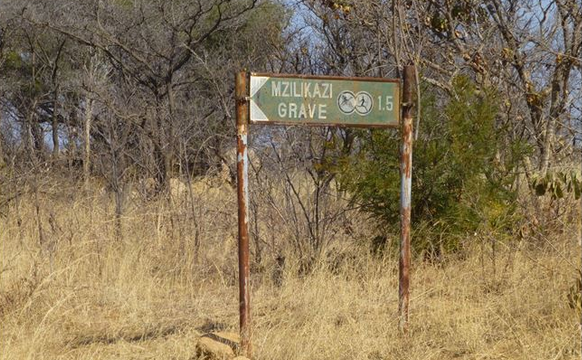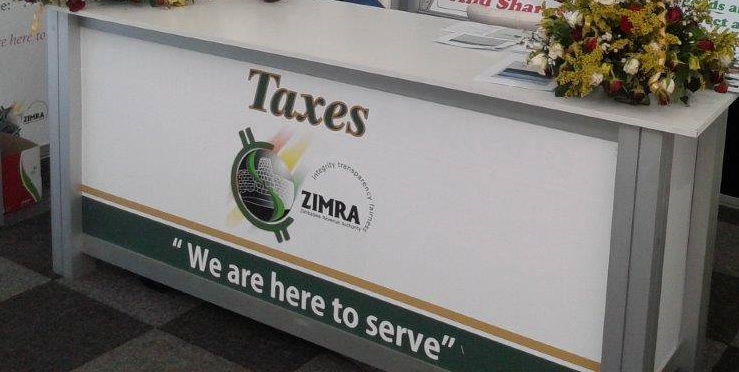ZIMBABWE'S national electronic funds switch, Zimswitch, this week froze after panic buying over the weekend overwhelmed the system, triggering chaos as shoppers failed to transact in an economy now predominantly reliant on plastic transactions.
The situation also affected the ZimSwitch Instant Payment Interchange Technology (ZIPIT), a payment solution that enables financial transactions using mobile banking platforms. A banking sector source said: "It was a volumes problem. The Zimswitch system was flooded and overwhelmed."
The source, a senior bank executive, said the Zimswitch system had been overwhelmed on Monday when banks were clearing transactions emanating from large volumes of electronic transactions made by consumers during panic buying on Saturday. He dismissed reports that this could have been caused by a systems upgrade, saying the banks would have given depositors prior notice if an upgrade were to be undertaken. "During an upgrade, we advise the market in time," he said.
Zimswitch and its ZIPIT platform have become the backbone of electronic funds transfer in Zimbabwe, processing about 14 million transactions per month after the stock of bank notes diminished to unsustainable levels, resulting in failure by depositors to withdraw their money from banks. The disruption was only brief, but it briefly grounded the economy.
In supermarkets, where consumers jostled to mop up cooking oil stocks, winding queues emerged and Harare's motorways were blocked by traffic trying to refuel as point of sale (POS) machines at gas station went offline. Although the facility had started functioning on Tuesday, not all banks could transact on Zimswitch-linked POS facilities.
"I had to look for cash because the system was still offline," a motorist said on Tuesday. Speculation had emerged that authorities had suspended the payment platform to stem panic buying but ZimSwitch said the problem had been caused by a system upgrade. Independent analysts say the banking system has been weakening. Zimbabwe's physical foreign currency cash holdings have diminished from a monthly average of $300 million between 2013 and 2014 to $57 million in June 2017, less than one percent of total deposits, according to central bank statistics.
Experts say physical cash should be between 15 percent and 20 percent of bank deposits. Banks continue to struggle with cash demands, despite a marked increase in the use of electronic payment platforms like ZIPIT. "Bond notes alleviated the domestic currency for a few months but have since also disappeared from circulation. The public's insistence on cash has become a major headache for banks as they are not able to meet this need," IH Securities said in a research note on banks. Stress on the system has grown in tandem with a spike in prices and a bull-run on the Zimbabwe Stock Exchange over the past couple of weeks, said by analysts to be another sign of low confidence in an obscure domestic currency that currently resides in bank balances unsupported by real money.
The strain has intensified after the Reserve Bank of Zimbabwe (RBZ) last year introduced bond notes to deal with a bank notes shortages caused by displacement of United States dollars in the banking sector by real time gross settlement balances created to pay government obligations by the central bank. Nearly $1,5 billion in the banking sector now represents cash created through the RTGS platform, which has no backing of hard currency earned from exports. The situation has been compounded by billions of Treasury bills (TBs) issued by the central bank to settle debts.
These, too, have resulted in money creation. Analysts said there was now a real risk of a "financial accident" in the banking sector. "These are bad signals," said Kingstone Kanyile, chief executive officer at Mtilikwe Financial Services. "If you have higher transaction volumes than what the system is designed to handle, it is bound to fail. People are now swiping up their money to buy groceries because they cannot withdraw cash from banks," he said. RBZ data revealed that during the week ending September 15, 2017, the national payment system handled $1,849 billion, down from $1,981 billion the previous week.
Transactions processed through the RTGS system declined by 0,8 percent, to close the week at $1,292 billion. This was a week before panic shopping gripped the market. The central bank boss, John Mangudya, attempted to calm the markets by promising to allocate more foreign currency to vital sectors to ensure there were no shortages in the market. "Foreign exchange currently being allocated for basic and essential commodities has been increased to ensure that shortages of commodities do not occur within the economy," he said. On Saturday, the RBZ signed an MoU with Afreximbank for the disbursement of a $600 million nostro stabilisation facility to facilitate the import of raw materials by commodities producers.
- fingaz
 Dudula hits back at Zanu PF
Dudula hits back at Zanu PF  South Africa is in serious trouble
South Africa is in serious trouble  US halts visa services for Zimbabwean nationals
US halts visa services for Zimbabwean nationals  ZSE and VFEX recover after weak 1st half
ZSE and VFEX recover after weak 1st half  Gold edges up as traders await guidance
Gold edges up as traders await guidance  Econet faces backlash over SmartBiz router policy
Econet faces backlash over SmartBiz router policy  Young Investment Professional (YIP) Graduate Programme 2019
Young Investment Professional (YIP) Graduate Programme 2019 











 Young Investment Professional (YIP) Graduate Programme 2019
Young Investment Professional (YIP) Graduate Programme 2019
Editor's Pick